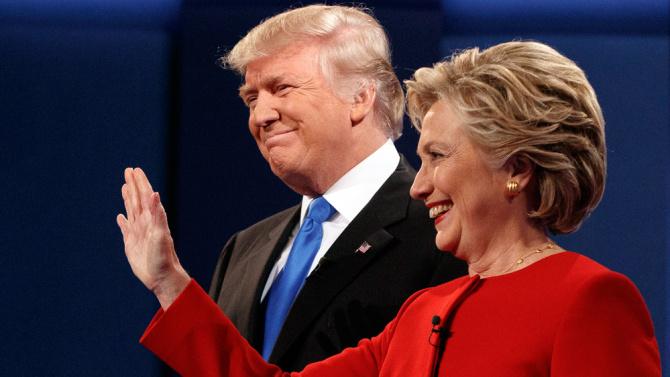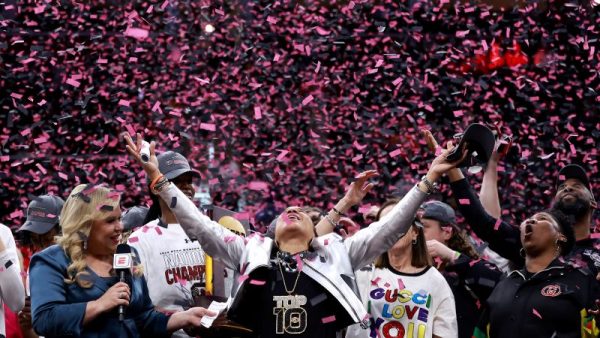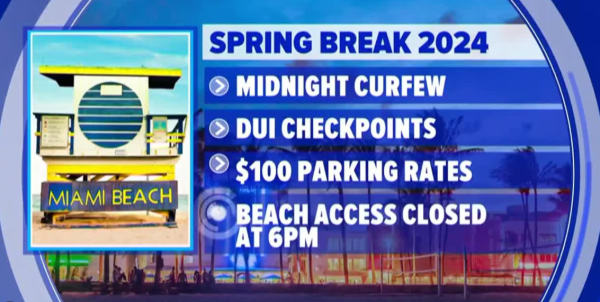A Fate in the Hands of the Public
November 8, 2016
What’s in a vote? For many, this year’s presidential election seems to either be of the utmost importance, or the least. With the general public having such polarizing opinions of this year’s two candidates, all eyes will be on the results after this Tuesday. Throughout the months of never-ending disputes, headlines, and scandals, our country has involuntarily undergone a self-examination of morals and core values. Particularly in this election, the assertion of which candidate most accurately reflects these values (and what values we are willing to compromise on) has been difficult to wrestle with. The high energy campaign season has been full of controversy and just about every curveball imaginable. With both candidates struggling to connect with “undecided” voters, Libertarian candidate Gary Johnson and Green Party candidate Dr. Jill Stein have been able to harness numbers that are typically unusual.
The makeup of the Supreme Court is one topic that has many voters concerned. With one vacancy due to the passing of Antonin Scalia and the Senate’s refusal to confirm nomination, the next president will shape the future of the legal system in America. In addition to the single vacancy that we face today, three other spots will likely need to be filled within the span of the next four years. To an extent, this means that American citizens will be voting indirectly for the protection of gay rights, civil rights, gun rights, and many other social issues that will be faced in the future. For those that are on the fence about a certain candidate, this has been a major motive as who they will support in the voting booth.
The topic of immigration is another important issue weighing on the minds of voters. From the day he announced his candidacy for president, Trump has based his campaign on the issue of immigration. The controversial outlines of “extreme vetting,” as he calls it, have caused much of the population to label him a xenophobe. Despite its controversial reception, Trump has been able to strike a chord with a large amount of the general public. As for Clinton, her more progressive approach to immigration is founded on the idea that those that wish to become legal citizens of this country should be given the opportunity to do so. Under Clinton’s plans, she advocates for a clearer road to citizenship or more assistance with the process currently in place.
It is impossible to ignore the numerous controversies that have been largely in focus throughout this election. While many of these have been debunked or not as they initially appeared, they have certainly been the cause of increased voter distrust. In the case of Hillary Clinton, her actions as Secretary of State, the most disputed being the issue of Benghazi, have been concerning to the public. After the situation had been analyzed further, it was found that Clinton could not be held responsible for the tragic deaths of those at the embassy in Libya. During the investigation, Clinton said “No one has lost more sleep over this than me.” It is almost impossible to avoid hearing references to Clinton’s emails when watching the evening news. While the decision to have a private email server has been determined reckless, the FBI has found that Clinton and her staff had no intention of threatening the nation’s security; therefore, there are no legitimate grounds for legal repercussions to affect her. As for Trump, his worst enemy has been his lack of censorship and his record of being exempt from the accountability of the everyday citizen. Trump’s contradictory practice of paying no income tax while criticizing the poor state of education, infrastructure, and other institutions, which benefit from federal tax revenue, has raised red flags. His numerous sound bites featuring hostile, dismissive, and flat out rude comments have caused many Americans to question his character. Trump’s overall combative and demeaning persona is one that has caused him to be just out of reach for undecided voters. Some simply cannot bring themselves to support a candidate such as him.
The candidates have also attempted to fold the rising political revolutions into their campaigns. With former Democratic candidate Bernie Sanders resonating with a progressive voting bloc which rejects the influence of the wealthy on American politics among other perceived injustices, Clinton worked to convince his supporters that she too values the 99% over the political influence of big money. However, with such a strong, opinionated, and idealist support system, it has been difficult to convince those “feeling the Bern” to vote in accordance with his former competitor. With Trump, the struggle lays in convincing the conventional Republican to adopt his views. Part of his success has stemmed from the fact that he has no political background. For those frustrated with the current Republican leadership, Trump has been able to appeal with the idea of “draining the swamp” that is Washington. It has been questionable as to whether or not Trump is a true conservative and his alienation of top Republican leaders, including John McCain and Paul Ryan, has certainly not helped. With numerous Republican senators and house members either pulling their endorsements or avoiding comments at all costs, it is difficult to foresee a cooperative relationship between a Trump presidency and Congress.
While many still struggle to firmly trust in either candidate, the unconventional nature of this entire election season is the cause of the indecisiveness of genuine independents. With so many states becoming battlegrounds, it is safe to say that this election has been atypical. Even states that are usually overwhelmingly partisan, Georgia for example, numbers for the opposing party are higher than normal. All in all, the decision that Americans reach today will be extremely telling of the direction of our country. To answer the initial question, everything is in the power of a vote.











